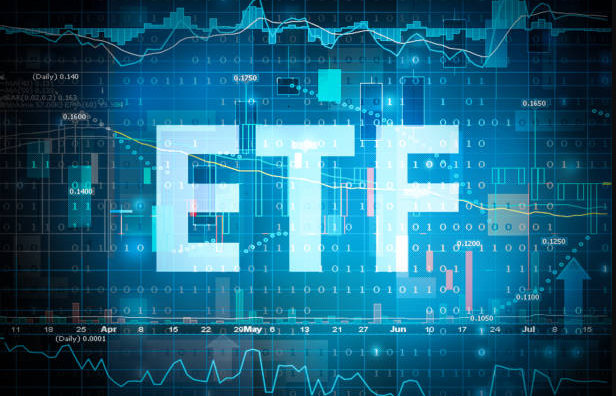-
 Bitcoin
Bitcoin $83,693.4772
-0.71% -
 Ethereum
Ethereum $1,817.7102
-0.37% -
 Tether USDt
Tether USDt $0.9997
-0.02% -
 XRP
XRP $2.1339
2.23% -
 BNB
BNB $596.9757
-0.15% -
 Solana
Solana $121.5593
2.30% -
 USDC
USDC $1.0000
0.00% -
 Dogecoin
Dogecoin $0.1696
1.75% -
 Cardano
Cardano $0.6614
0.39% -
 TRON
TRON $0.2369
-0.88% -
 Chainlink
Chainlink $12.9593
-0.88% -
 UNUS SED LEO
UNUS SED LEO $8.9206
-4.70% -
 Toncoin
Toncoin $3.2958
-6.81% -
 Stellar
Stellar $0.2557
-2.79% -
 Avalanche
Avalanche $18.2747
-1.39% -
 Sui
Sui $2.2549
-0.27% -
 Shiba Inu
Shiba Inu $0.0...01237
-0.27% -
 Hedera
Hedera $0.1629
-1.15% -
 Litecoin
Litecoin $83.9303
-0.91% -
 Polkadot
Polkadot $4.0096
-2.33% -
 MANTRA
MANTRA $6.2434
-1.07% -
 Bitcoin Cash
Bitcoin Cash $303.0473
-1.83% -
 Bitget Token
Bitget Token $4.5115
-1.00% -
 Dai
Dai $1.0001
0.00% -
 Ethena USDe
Ethena USDe $0.9991
-0.05% -
 Pi
Pi $0.6523
18.15% -
 Monero
Monero $217.2879
-0.01% -
 Hyperliquid
Hyperliquid $11.9364
0.75% -
 Uniswap
Uniswap $5.9118
-1.45% -
 OKB
OKB $51.4933
9.41%
how etf is different from mutual fund
ETFs offer real-time trading and fluctuate in price like stocks, while mutual funds have relatively stable prices and are traded once daily at net asset value.
Oct 16, 2024 at 11:05 am

Differences Between ETFs and Mutual Funds
1. Tradability
- ETFs trade like stocks on exchanges throughout the trading day, allowing investors to buy and sell them at real-time prices.
- Mutual funds are typically traded once per day after the market closes, at their net asset value (NAV) calculated at the end of the trading day.
2. Price Fluctuations
- ETFs experience fluctuations in their prices based on supply and demand in the market, just like stocks. This allows investors to potentially profit or lose from short-term price movements.
- Mutual funds have relatively stable prices because their NAVs are calculated based on the underlying assets' values and are not subject to the same real-time market pressures.
3. Expense Structure
- ETFs typically have lower expense ratios than mutual funds due to their passive investment strategies and lower management fees.
- Mutual funds often have higher expense ratios to cover the costs of actively managed portfolios and additional services.
4. Investment Strategies
- Most ETFs are passively managed, meaning they track a specific index or asset class and invest accordingly.
- Mutual funds can be either actively or passively managed. Actively managed funds have portfolio managers who make investment decisions based on market research and analysis.
5. Tax Implications
- ETFs can be more tax-efficient than mutual funds because they distribute capital gains distributions when they sell their underlying assets, which can be reinvested for tax-deferred growth.
- Mutual funds distribute dividends and capital gains distributions to investors, which can be taxable depending on the investor's tax bracket.
6. Liquidity
- ETFs offer greater liquidity than mutual funds because they are traded on exchanges like stocks.
- Mutual funds may have redemption fees or holding periods that can restrict investor access to their funds.
7. Suitability
- ETFs are suitable for investors seeking real-time trading, potential for price fluctuations, lower expense ratios, and tax efficiency.
- Mutual funds are suitable for investors who prefer passive or active management, stable prices, and may not require frequent access to their funds.
Disclaimer:info@kdj.com
The information provided is not trading advice. kdj.com does not assume any responsibility for any investments made based on the information provided in this article. Cryptocurrencies are highly volatile and it is highly recommended that you invest with caution after thorough research!
If you believe that the content used on this website infringes your copyright, please contact us immediately (info@kdj.com) and we will delete it promptly.
- A prominent crypto analyst, known as Cheds, has issued a warning about Dogecoin's (DOGE) potential decline amid the ongoing market correction.
- 2025-04-05 17:20:12
- Remittix (RTX) Token Presale Raises Over $14.2M Ahead of Its Launch
- 2025-04-05 17:20:12
- Usual Labs Launches a Significant Bug Bounty Program with a $16 Million Prize Pool
- 2025-04-05 17:15:12
- Bandai Namco Amusement Europe Expands its Business Development and Sales Capabilities with the Appointment of Anna Gavrylova
- 2025-04-05 17:15:12
- Qubetics, Binance Coin (BNB), and Bitcoin (BTC) Are 3 Cryptos to Buy the Dip
- 2025-04-05 17:10:12
- Solana (SOL) Price Prediction: Targeting $220 By April 10th, 2024
- 2025-04-05 17:10:12
Related knowledge

What role does SEC play in Bitcoin ETF approval?
Feb 25,2025 at 06:48am
Key Points:SEC's Role in Bitcoin ETF Approval ProcessHistorical Efforts to Establish a Bitcoin ETFSEC's Criteria for Bitcoin ETF ApprovalPotential Impact of a Bitcoin ETF on the Cryptocurrency MarketTimeline and Outlook for Bitcoin ETF ApprovalArticle:SEC Play in Bitcoin ETF ApprovalThe United States Securities and Exchange Commission (SEC) plays a crit...

Who is eligible to issue Bitcoin ETFs?
Feb 25,2025 at 11:13am
Key Points:Only regulated financial institutions with the necessary expertise and infrastructure are eligible to issue Bitcoin ETFs.The Securities and Exchange Commission (SEC) has not yet approved any spot Bitcoin ETFs, but has approved several futures-based ETFs.Applicants must meet stringent requirements, including having a strong track record and su...

What impact does Bitcoin ETF have on the market?
Feb 25,2025 at 11:37am
Key Points:Introduction to Bitcoin ETFs and their role in the cryptocurrency marketHistorical development and performance of Bitcoin ETFsPotential benefits of Bitcoin ETFs for investors and the marketRisks and limitations associated with Bitcoin ETFsRegulatory considerations and their impact on Bitcoin ETFsArticle:Introduction to Bitcoin ETFsBitcoin exc...

Which investors are Bitcoin ETFs suitable for?
Feb 27,2025 at 04:01pm
Key Points:Understanding Bitcoin ETFsBenefits of Bitcoin ETFsSuitability of Bitcoin ETFs for Different InvestorsAssessing Risk Tolerance and Investment GoalsConsidering Short-Term and Long-Term StrategiesExamining Tax ImplicationsSeeking Professional AdviceUnderstanding Bitcoin ETFsBitcoin exchange-traded funds (ETFs) are investment vehicles that track ...

What is the administrative expenses of Bitcoin ETFs?
Feb 26,2025 at 12:24am
Key Points:Administrative expenses are a crucial factor to consider when evaluating Bitcoin ETFs.These expenses can significantly impact the performance of the fund and ultimately the investor's returns.Understanding the various components of administrative expenses is essential for informed decision-making.Comparing administrative expenses across diffe...

What are the fees for purchasing Bitcoin ETFs?
Feb 27,2025 at 07:13pm
Key Points:Bitcoin exchange-traded funds (ETFs) are a cost-effective and regulated way to gain exposure to Bitcoin.Fees associated with Bitcoin ETF purchases vary depending on the platform, trading volume, and account type.It is essential to evaluate fee structures carefully to optimize investment returns.Fees Associated with Purchasing Bitcoin ETFs1. B...

What role does SEC play in Bitcoin ETF approval?
Feb 25,2025 at 06:48am
Key Points:SEC's Role in Bitcoin ETF Approval ProcessHistorical Efforts to Establish a Bitcoin ETFSEC's Criteria for Bitcoin ETF ApprovalPotential Impact of a Bitcoin ETF on the Cryptocurrency MarketTimeline and Outlook for Bitcoin ETF ApprovalArticle:SEC Play in Bitcoin ETF ApprovalThe United States Securities and Exchange Commission (SEC) plays a crit...

Who is eligible to issue Bitcoin ETFs?
Feb 25,2025 at 11:13am
Key Points:Only regulated financial institutions with the necessary expertise and infrastructure are eligible to issue Bitcoin ETFs.The Securities and Exchange Commission (SEC) has not yet approved any spot Bitcoin ETFs, but has approved several futures-based ETFs.Applicants must meet stringent requirements, including having a strong track record and su...

What impact does Bitcoin ETF have on the market?
Feb 25,2025 at 11:37am
Key Points:Introduction to Bitcoin ETFs and their role in the cryptocurrency marketHistorical development and performance of Bitcoin ETFsPotential benefits of Bitcoin ETFs for investors and the marketRisks and limitations associated with Bitcoin ETFsRegulatory considerations and their impact on Bitcoin ETFsArticle:Introduction to Bitcoin ETFsBitcoin exc...

Which investors are Bitcoin ETFs suitable for?
Feb 27,2025 at 04:01pm
Key Points:Understanding Bitcoin ETFsBenefits of Bitcoin ETFsSuitability of Bitcoin ETFs for Different InvestorsAssessing Risk Tolerance and Investment GoalsConsidering Short-Term and Long-Term StrategiesExamining Tax ImplicationsSeeking Professional AdviceUnderstanding Bitcoin ETFsBitcoin exchange-traded funds (ETFs) are investment vehicles that track ...

What is the administrative expenses of Bitcoin ETFs?
Feb 26,2025 at 12:24am
Key Points:Administrative expenses are a crucial factor to consider when evaluating Bitcoin ETFs.These expenses can significantly impact the performance of the fund and ultimately the investor's returns.Understanding the various components of administrative expenses is essential for informed decision-making.Comparing administrative expenses across diffe...

What are the fees for purchasing Bitcoin ETFs?
Feb 27,2025 at 07:13pm
Key Points:Bitcoin exchange-traded funds (ETFs) are a cost-effective and regulated way to gain exposure to Bitcoin.Fees associated with Bitcoin ETF purchases vary depending on the platform, trading volume, and account type.It is essential to evaluate fee structures carefully to optimize investment returns.Fees Associated with Purchasing Bitcoin ETFs1. B...
See all articles




















































































